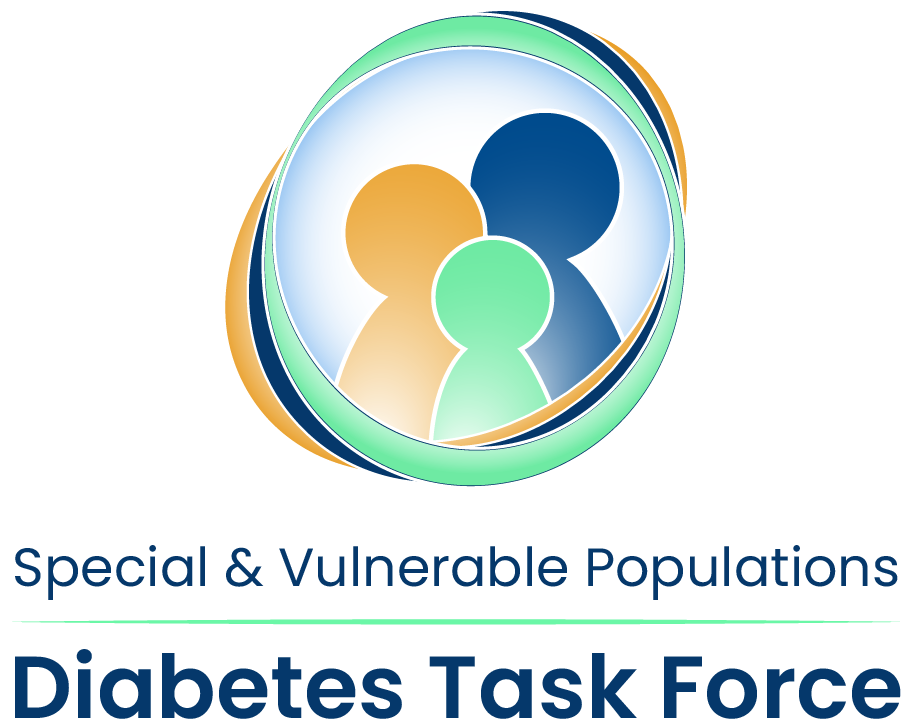Population Health Management:
A National Learning Series
Spring 2024
Purpose
This Spring’s national learning series took a deeper dive into issues around systemic, structural, and environmental barriers and strategies for improving chronic disease management and care. Each webinar focused on developing, evaluating, and supporting effective health care delivery models. Webinar materials are practical, providing information and enhancing skills for health center workforce.
For any questions regarding the National Learning Series, contact us at training@chcdiabetes.org.
See recordings, slides, resources, and full details on individual sessions below.
Session 4: Team-Based Approaches for Managing Complex Health Needs
View the slides: https://bit.ly/4czGEez
Transcript PDF: https://bit.ly/49hRVgN
Transcript plaintext: https://bit.ly/3IYgBQU
Download the audio: https://bit.ly/43Bi6xK
Complete the evaluation: https://bit.ly/2024PopHealthNLS-survey
Hosted on Wednesday, March 27, this session focused on innovative and collaborative approaches for health centers as they provide comprehensive care to individuals living with multiple chronic conditions. Presenters shared strategies for enhancing care delivery, patient engagement, and overall health outcomes.
After this webinar, participants will be able to:
Understand the impact of fragmented care on patients living with multiple chronic conditions (MCC).
Identify key elements of comprehensive MCC interventions that prioritize unique patient needs and preferences.
Consider innovative strategies to improve care coordination and inter-professional collaboration.
NTTAP Collaborating Partners:
Session 3: Diabetes Prevention: Food Sovereignty and Access to Ancestral, Cultural, and Healthful Foods
View the slides: https://bit.ly/43sWbZJ
Transcript PDF: https://bit.ly/43tLKox
Transcript plaintext: https://bit.ly/3PuIp2F
Download the audio: https://bit.ly/3x4AH9i
Complete the evaluation: https://bit.ly/2024PopHealthNLS-survey
Hosted on Wednesday, March 20, this session outlined the intersections between food and diabetes with a particular focus on how connection to cultural and ancestral foods is critical for diabetes prevention, health, and well-being. Speakers shared promising practices for connecting communities to healthful foods through community supported agriculture (CSA) and expanding patient and provider knowledge of the benefits of cultural and ancestral eating.
After this webinar, participants will be able to:
Describe the relationship between diabetes, food sovereignty, and connection to cultural food systems.
Identify barriers to accessing ancestral and healthful foods among health center populations.
Explore health center programs and partnerships to enhance food access and connection to cultural and ancestral foods.
NTTAP Collaborating Partners:
Session 2: Housing and HIV: Bridging the Gap between HIV and Housing in Special and Vulnerable Populations
View the slides: https://bit.ly/43wyNKV
Transcript PDF: https://bit.ly/43l1fPO
Transcript plaintext: https://bit.ly/3VjuK2j
Download the audio: https://bit.ly/4adqQvY
Complete the evaluation: https://bit.ly/2024PopHealthNLS-survey
Hosted on Wednesday, March 13, this session featured a discussion on the drivers of health for individuals at risk for or living with HIV/AIDS and Hepatitis C. Participants Expert providers in the field spoke on addressing SDOH needs with special emphasis on housing as an intervention and the importance of cross sector partnerships.
After this webinar, participants will be able to:
To discuss the importance of housing and the intersection of HIV prevention and linkage to care with housing.
To describe the intersection of HIV with HCV and the unique needs of individuals most at risk for co-infection.
To recognize the importance of partnerships and cross-sector collaborations to advance HIV prevention and linkage to care efforts.
To understand the various funding streams supporting individuals living with HIV/AIDS to address SDOH.
NTTAP Collaborating Partners:
Session 1: Foundations of Population Health Management in Priority Populations
View the slides: https://bit.ly/3wIRIFS
Transcript PDF: https://bit.ly/3wDuDnS
Transcript plaintext: https://bit.ly/3wTHwKz
Download the audio: https://bit.ly/3ToYxVL
Complete the evaluation: https://bit.ly/2024PopHealthNLS-survey
Hosted on Wednesday, March 6, 2024, this introductory session highlighted the importance of employing a population health approach to the prevention, treatment, and management of chronic conditions among priority populations. Speakers shared current research, examples, and best practices for a population health approach to chronic disease management, and provided context for the following three webinars in the National Learning Series.
After this webinar, participants will be able to:
Define the purpose and scope of the National Learning Series and the Population Health Management Taskforce.
Define population health and priority populations and understand their importance in chronic disease management.
Identify three examples of population health management within chronic disease prevention and treatment.
NTTAP Collaborating Partners:

